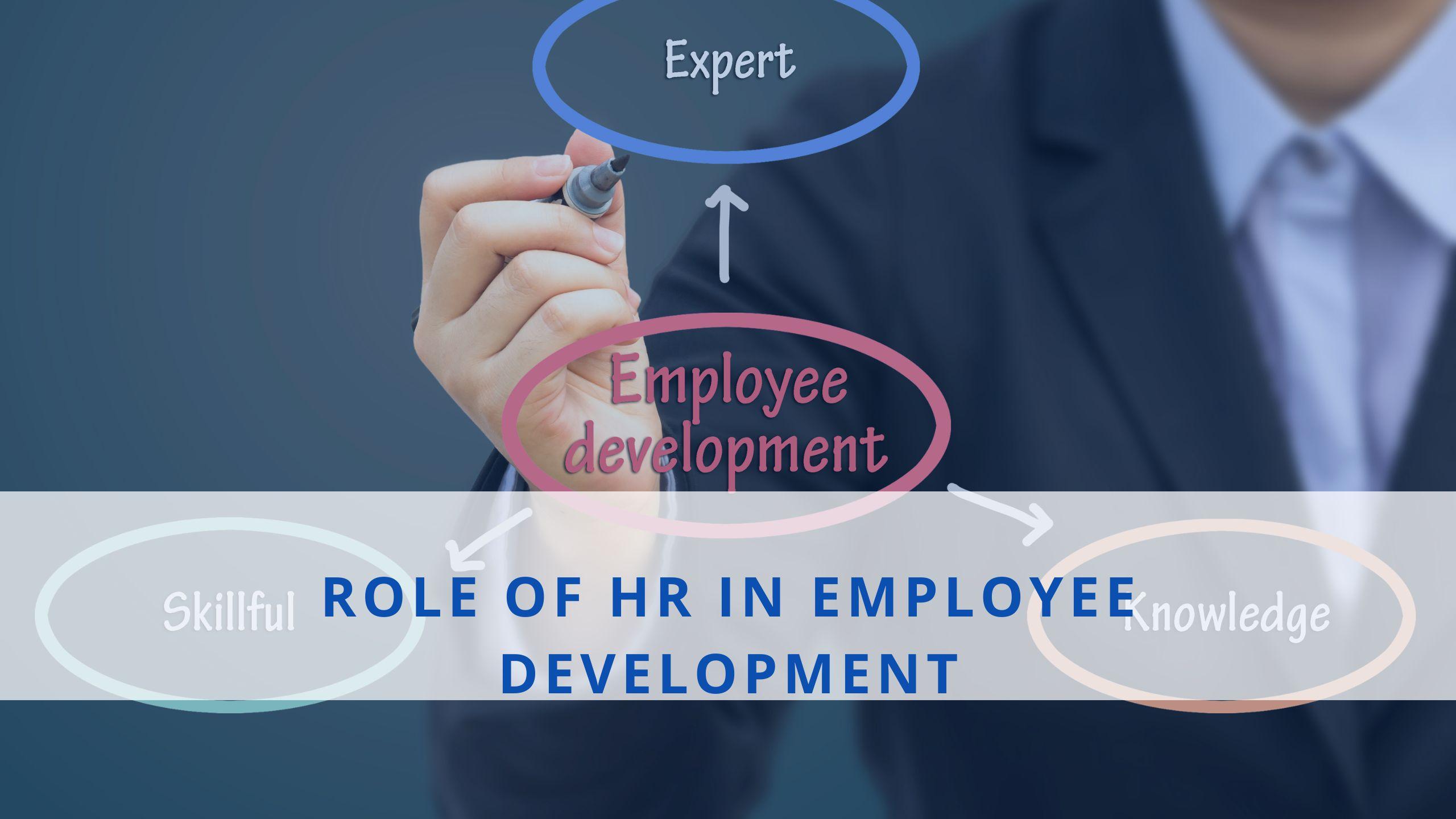The Essential Role of HR in Nurturing Employee Development

Modern businesses thrive on innovation, adaptability, and skilled talent, making Employee Development a cornerstone of long-term success. Human Resources (HR) departments are at the forefront of nurturing this growth by implementing programs that enhance skills, foster leadership, and create opportunities for career advancement. By placing Employee Development at the center of HR strategy, organizations can ensure continuous workforce improvement, higher engagement, and sustainable business growth.
HR as the Nurturer of Employee Potential
HR serves as the bridge between organizational goals and employee aspirations. By identifying skill gaps and mapping employee potential, HR creates development strategies that nurture both individual and business growth. Employee Development programs guided by HR provide employees with structured learning opportunities, helping them achieve personal goals while contributing to organizational performance. This nurturing role transforms HR into a vital partner in long-term workforce sustainability.
Designing Comprehensive Development Frameworks
Employee Development requires structured frameworks, and HR is responsible for designing them. From onboarding to advanced leadership programs, HR ensures employees experience continuous growth at every stage of their career. These frameworks include mentorship, coaching, technical training, and soft skills enhancement. By creating such comprehensive programs, HR provides employees with the tools needed to grow professionally and personally, ensuring the organization benefits from a highly capable workforce.
Employee Development and Business Alignment
One of HR’s essential roles is to align Employee Development with business strategy. This alignment ensures that training initiatives prepare employees for the challenges of future organizational expansion. For example, if a company is planning digital transformation, HR introduces digital skills training, data analysis workshops, and technology adoption sessions. This direct alignment strengthens the organization’s ability to achieve its goals through a skilled and future-ready workforce.
Building a Culture of Learning
HR nurtures Employee Development by fostering a culture of continuous learning. Instead of treating training as a one-time activity, HR integrates learning into everyday work life. Employees are encouraged to pursue certifications, attend industry conferences, and engage in cross-departmental projects. By embedding learning into organizational culture, HR ensures that employees continuously develop new skills, keeping the workforce competitive in changing markets.
The Role of HR in Leadership Development
Strong leaders are essential for driving growth, and HR plays a vital role in cultivating them. Employee Development programs designed by HR focus on leadership skills such as decision-making, conflict resolution, and team management. Succession planning and executive coaching are additional strategies HR employs to prepare high-potential employees for leadership roles. By nurturing leaders internally, HR ensures organizational stability and creates a pipeline of capable managers.
Employee Engagement Through Development
HR understands that engaged employees are more productive, loyal, and innovative. Employee Development serves as a powerful engagement tool by providing employees with opportunities to grow and advance. Training, recognition, and career development initiatives increase motivation, making employees feel valued within the organization. When engagement and development are combined, HR fosters a motivated workforce that contributes actively to organizational success.
Leveraging Technology in Employee Development
Technology has become a game-changer in how HR nurtures Employee Development. Digital platforms such as Learning Management Systems (LMS), virtual training modules, and AI-driven analytics allow HR to create personalized learning paths. These tools track progress, provide feedback, and ensure accessibility for employees working in remote or hybrid setups. By leveraging technology, HR delivers scalable and efficient Employee Development opportunities that strengthen workforce capabilities.
Collaboration and Team-Oriented Development
HR promotes team growth alongside individual Employee Development. By encouraging cross-functional collaboration, HR ensures that employees learn from diverse perspectives. Team-building exercises, group training sessions, and collaborative projects help build stronger relationships among employees. This collaborative development approach enhances creativity, problem-solving, and adaptability within the workforce, making teams more resilient and effective.
Diversity, Inclusion, and Equal Development Opportunities
Nurturing Employee Development also means ensuring that opportunities are inclusive and accessible to everyone. HR takes the lead in promoting diversity by designing unbiased training programs, mentorship initiatives for underrepresented groups, and equal career advancement opportunities. A diverse and inclusive workforce not only strengthens innovation but also reinforces the organization’s reputation as an equitable employer.
Measuring the Effectiveness of Employee Development
For Employee Development initiatives to be effective, HR must measure their impact using performance metrics. These include employee satisfaction, retention rates, productivity improvements, and promotion statistics. By analyzing data, HR identifies areas where development programs succeed and where adjustments are needed. Continuous evaluation ensures that Employee Development initiatives remain aligned with workforce needs and business objectives.
The Future of HR in Employee Development
The role of HR in nurturing Employee Development will continue to expand as organizations face new challenges. With remote work, globalization, and AI integration shaping industries, HR must design adaptive and forward-thinking development strategies. Personalized training, hybrid learning environments, and predictive workforce analytics will be essential in the future. By nurturing talent with innovative strategies, HR will remain a vital driver of sustainable workforce growth.
Read Full Article: https://businessinfopro.com/the-role-of-hr-in-employee-development-and-workforce-growth/
About Us:
BusinessInfoPro is your essential gateway to cutting-edge business insights and strategic innovation, delivering expertly curated analysis on digital transformation, AI-powered planning, ERP optimization, sustainability, and marketing trends. We bridge the gap between emerging technologies and practical business applications whether it’s exploring AI’s impact on enterprise planning, optimizing supply-chain processes, or decoding the future of digital platforms and advertising. Our content empowers leaders to make informed decisions, stay ahead in competitive landscapes, and confidently navigate disruptions. Backed by forward-thinking perspectives and rigorous analysis, Businessinfopro is committed to equipping professionals with the tools and knowledge they need to transform challenges into opportunities and drive growth in a rapidly evolving business ecosystem.
- Art
- Causes
- Crafts
- Dance
- Drinks
- Film
- Fitness
- Food
- Oyunlar
- Gardening
- Health
- Home
- Literature
- Music
- Networking
- Other
- Party
- Religion
- Shopping
- Sports
- Theater
- Wellness




